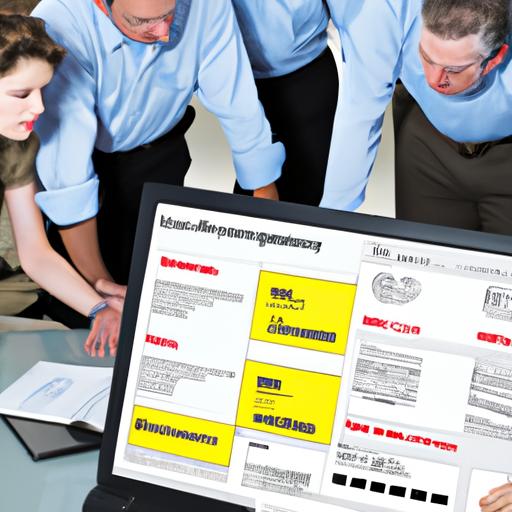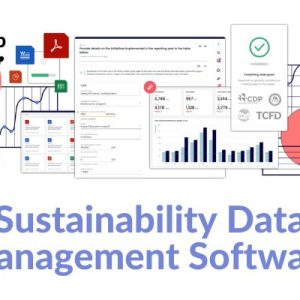Learn how to implement and use SAP ERP Software with our comprehensive guide. Getting Started with SAP ERP Software has never been easier!
As businesses grow, they require a robust system to manage their operations effectively. Enterprise Resource Planning (ERP) software is a solution that streamlines business processes, providing real-time insights into operations, reducing costs, and enhancing productivity. SAP ERP software is a popular solution that helps businesses achieve their goals while providing a competitive edge.
In this guide, we will explore how to get started with SAP ERP software, the features, benefits, and challenges businesses may face. Whether you’re a small business owner or an enterprise company, understanding this software’s ins and outs is essential. So, let’s dive in!
Why is SAP ERP software essential for businesses?
SAP ERP software is an integrated solution that helps businesses automate their processes, streamline operations, and improve productivity. The software provides a centralized platform for managing different aspects of a business, such as finance, procurement, inventory, and sales. With SAP ERP software, businesses can make data-driven decisions, reduce operational costs, and increase efficiency. Moreover, the software’s scalability enables businesses to adapt to changing market conditions and enhance their competitiveness.
Stay tuned for the upcoming sections to learn more about the features, benefits, and challenges of implementing SAP ERP software.
Features of SAP ERP Software

SAP ERP software comes with an array of features that make it an ideal solution for businesses of all sizes. Here’s a brief overview of the main features and their benefits:
1. Financial Management
SAP ERP software provides a comprehensive financial management system that helps businesses streamline their financial processes. The software enables businesses to manage their accounting, financial planning, and budgeting effectively. With SAP ERP’s financial management module, businesses can generate financial reports, monitor cash flow, and track expenses.
2. Inventory Management
SAP ERP software helps businesses manage their inventory efficiently, reducing the risk of stockouts and overstocking. The software’s inventory management module enables businesses to track inventory levels, monitor stock movements, and forecast demand. Moreover, businesses can optimize their inventory carrying costs and reduce the risk of stock obsolescence.
3. Sales and Distribution
SAP ERP software provides businesses with a robust sales and distribution module that helps them manage their sales processes effectively. The software enables businesses to manage their sales orders, pricing, and promotions. With SAP ERP’s sales and distribution module, businesses can enhance their customer satisfaction by providing timely and accurate order processing.
4. Procurement
SAP ERP software provides businesses with an efficient procurement system that helps them manage their purchasing processes. The software enables businesses to manage their purchase orders, vendor relationships, and contracts. With SAP ERP’s procurement module, businesses can reduce their procurement costs, negotiate better prices, and improve their supplier performance.
5. Human Resources
SAP ERP software provides businesses with an integrated human resources module that helps them manage their HR processes. The software enables businesses to manage their employee data, payroll, benefits, and performance. With SAP ERP’s human resources module, businesses can improve their HR processes, reduce administrative costs, and enhance their employee experience.
Stay tuned for the upcoming sections to learn more about how to get started with SAP ERP software and its benefits for businesses.
Benefits of Using SAP ERP Software

SAP ERP software offers numerous benefits that can help businesses streamline their operations and enhance their competitiveness. Here are some of the benefits of using SAP ERP software:
Increased efficiency and productivity
SAP ERP software automates business processes, eliminating manual tasks and reducing the risk of errors. This automation helps businesses save time and resources, allowing them to focus on core business activities. With SAP ERP software, businesses can also access real-time data, enabling them to make informed decisions quickly.
Enhanced visibility and control
SAP ERP software provides a centralized platform for managing business operations, offering a clear view of the company’s performance. The software’s analytics and reporting capabilities enable businesses to monitor key performance indicators (KPIs), identify trends, and make data-driven decisions. Moreover, the software’s security features ensure that businesses can control access to sensitive data, protecting their intellectual property.
Improved customer satisfaction
SAP ERP software enables businesses to streamline their sales processes, reducing the time it takes to process orders and deliver products or services. This efficiency can lead to improved customer satisfaction, as customers receive their orders promptly and accurately. Moreover, the software’s customer relationship management (CRM) capabilities enable businesses to manage customer interactions effectively, enhancing customer loyalty and retention.
Examples of businesses that have successfully implemented SAP ERP software
Several businesses have successfully implemented SAP ERP software, achieving significant benefits. For instance, McCormick & Company, a global leader in flavoring products, implemented SAP ERP software, resulting in a 15% reduction in inventory and a 20% increase in productivity. Similarly, Ingersoll Rand, a diversified industrial company, implemented SAP ERP software, leading to a 30% reduction in transactional costs and a 50% increase in inventory accuracy.
Challenges of Implementing SAP ERP Software

Implementing SAP ERP software can be a challenging task for businesses of all sizes. While the software provides significant benefits, it requires proper planning and execution to avoid potential problems. Here are some common challenges that businesses may face when implementing SAP ERP software:
h3.1 Integration Issues
SAP ERP software integrates various business processes, such as procurement, finance, inventory, and sales. Integrating these processes can be challenging, especially if the business has legacy systems that are not compatible with SAP ERP software. Integration issues can cause data inconsistencies, which can lead to incorrect decision-making and operational inefficiencies.
h3.2 Complexity
SAP ERP software is a complex system that requires a significant amount of resources to implement and maintain. Training employees to use the software can be time-consuming and expensive. Additionally, businesses need to ensure that the software is properly configured to meet their specific needs.
h3.3 Cost
Implementing SAP ERP software can be expensive, especially for small businesses. The software requires a significant investment in hardware, software licenses, and implementation services. Ongoing maintenance and support costs can also be high, making it challenging for businesses with limited budgets.
To overcome these challenges, businesses need to develop a comprehensive implementation plan. This plan should include a detailed analysis of the existing systems, a plan for integrating the SAP ERP software, and a budget for implementation and ongoing maintenance costs. Additionally, businesses should work closely with their implementation partners to ensure that the software is properly configured and that employees are trained to use it effectively. By addressing these challenges head-on, businesses can reap the benefits of SAP ERP software while avoiding potential problems.
Conclusion
In conclusion, SAP ERP software is an excellent solution for businesses looking to automate their processes, streamline operations, and improve productivity. We have explored the key features, benefits, and challenges of implementing SAP ERP software. By leveraging this software, businesses can make data-driven decisions, reduce operational costs, and increase efficiency.
To get started with SAP ERP software, businesses need to take specific steps, such as identifying their business needs, selecting the right SAP ERP software, and creating a strategic implementation plan. While implementing SAP ERP software can be challenging, businesses can overcome these challenges with proper planning, training, and support.
In summary, SAP ERP software is a powerful tool that businesses can leverage to enhance their competitiveness and achieve their goals. By following the steps outlined in this guide and partnering with a reliable SAP ERP vendor, businesses can take their operations to the next level.





